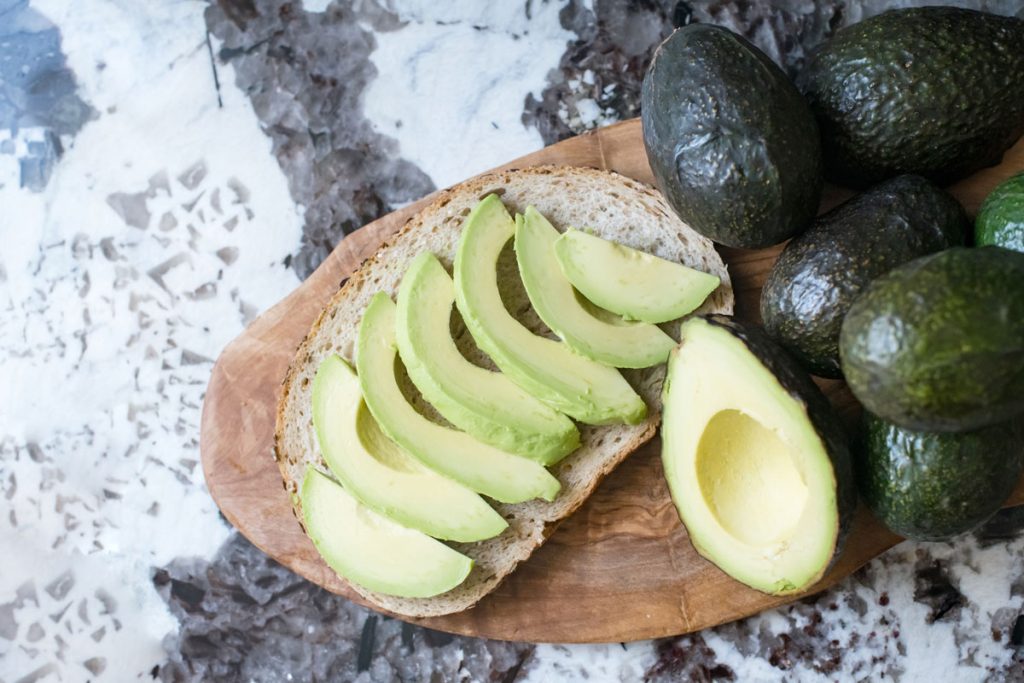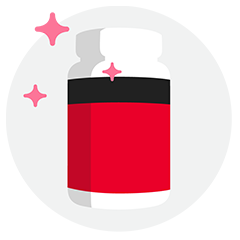Fats: The facts and the fiction

In a world that has often painted dietary fats as “bad” and all types of fats with the same brush, it’s no surprise that people are sometimes shocked when we talk about “good fats”. Here’s the scoop: fats are nutrients, just like protein and carbohydrates. They are required by the body in balanced amounts for proper energy production, vitamin D, E, A and K absorption, and for cardiovascular and cognitive health.
Boom! We said it.
Fats are important, but not all of them are created equal. There are beneficial fats and not-so-beneficial fats that we should think about when approaching meals. Eating the right type of fat doesn’t only help improve our overall health, it also helps boost your immune system and even helps keep Candida in check.
Not all fats are created equal
When it comes to ensuring a healthy dietary fat intake, you’ll want to pay attention to a few keywords to make healthier choices instead of limiting all fats. You also want to focus your attention on increasing beneficial fats and avoiding harmful fats in your diet.
Fats to avoid
Trans fats are a type of fat found naturally in small amounts in animal products and some dairy products. Artificial trans fats are produced synthetically by adding hydrogen to vegetable oil to solidify them. This type of fat has traditionally been used in packaged baked goods, margarine, snack foods, and fried foods. Trans fats increase our risk for heart disease by raising LDL (“bad” cholesterol) and lowering HDL (“good” cholesterol). Health Canada has banned the use of partially hydrogenated oils in foods, the main source of industrially-produced trans fats. Prior to that, in the 1990s, Canadians had one of the highest trans-fat intake levels in the world!
Fats to minimize
Saturated fats are found in higher amounts in fatty meats, full-fat dairy products, highly processed foods, and some tropical plant oils like palm and coconut oil. It is estimated that the major source of saturated fat in the Canadian diet is from highly processed food and sources like meat and dairy. Increasing consumption of whole foods and plant-based foods can help ensure a balanced intake of saturated fats.
Fats to welcome
On to the good stuff! The “good” fats that you’ll want to ensure you have in your diet are MUFAs and PUFAs. These might sound like a musical ensemble, but they stand for Monounsaturated and Polyunsaturated fats. They can be found in nuts and seeds, avocados, coconut and olive oils, and fatty fish (ie. sardines, mackerel, salmon, and herring).
MUFAs and PUFAs (omega-3 fatty acids EPA and DHA) are considered healthy fats. They help the body lower LDL cholesterol, maintain HDL cholesterol, support insulin levels, glucose regulation, and reduce the risk of heart disease. Replacing saturated fats in our diet with mono and poly-unsaturated fats has been shown to lower LDL cholesterol.
Research shows that ingestion of these good fats signals a special type of receptor, known as Free Fatty Acids Receptors (FFARs), which regulate the immune and metabolic system and help control the inflammatory response. But the benefits of good fat intake don’t end there. These good fats can also boost the number of T-cells found in our blood, a specialized type of white blood cell that is responsible for fighting off pathogens, including Candida.
What’s the scoop on coconut oil and MCTs?
Coconut oil and its medium-chain triglycerides (MCTs) constituents include caprylic acid, capric acid, and lauric acid, pack a healthy punch. Caprylic acid and capric acid have been found to penetrate cell walls of the Candida yeast and inhibit the growth of the yeast cell. Lauric acid has also demonstrated antifungal and antimicrobial activity. Several studies have even compared coconut oil to antifungal drugs such as fluconazole (Diflucan) and found that coconut oil was just as or even more effective!
Caprylic acid can also help mop up inflammation in the digestive tract that often occurs with Candida overgrowth. Studies have found MCT oil to be beneficial in many inflammatory bowel diseases (Crohn’s, colitis) by suppressing the secretion of inflammatory molecules.
When it comes to fats, look for whole-food-based sources like nuts, seeds, avocadoes, select fish, coconut and olive oils to keep all of the important fat-fueled functions in the body “well-oiled”!
Sources
Belluzzi, A., Boschi, S., Brignola, C., Munarini, A., Cariani, G., & Miglio, F. (2000). Polyunsaturated fatty acids and inflammatory bowel disease. The American journal of clinical nutrition, 71(1), 339s-342s.
Saturated fat: Heart disease and stroke
Seleem D, Chen E, Benso B, Pardi V, Murata RM. In vitro evaluation of antifungal activity of monolaurin against Candida albicans biofilms. PeerJ. 2016;4:e2148. Published 2016 Jun 22. doi:10.7717/peerj.2148






